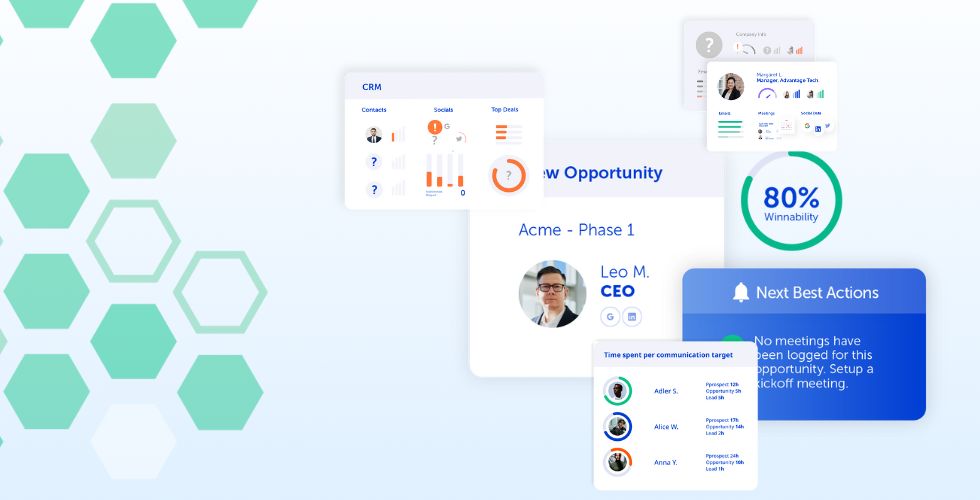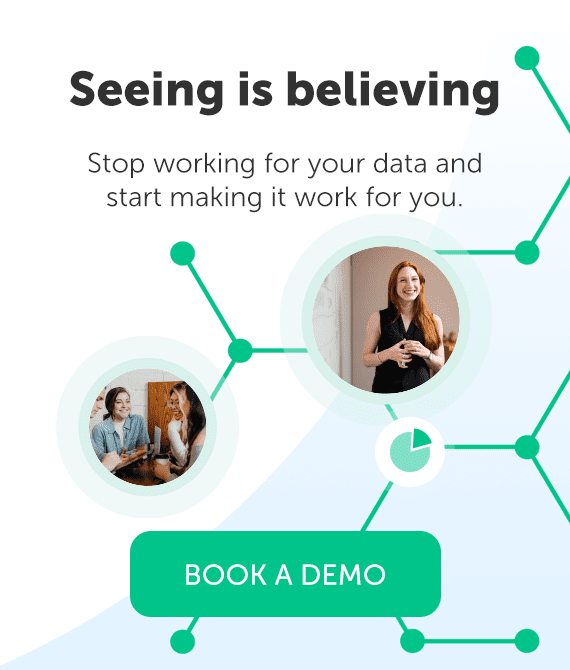Do you have the right relationship intelligence tools? Anyone working in the realm of legal and professional services will tell you that relationships are among their most vital business assets, so the tools you use to manage your relationship intelligence are vital.
Technology has continued to evolve with the times, and nowadays, client relationship intelligence is a recognized and digitally-enabled discipline. Today, there’s a range of great relationship intelligence solutions on the market that are specifically designed with legal and professional services in mind.
How strong are your client relationships?
These targeted platforms act as tools that gauge the relative strengths of the relationships that professionals within your firm have with people in their client networks. In theory, they should allow partners and practitioners – as well as sales, marketing, and business development teams – to immediately understand “who knows who” and identify the most promising opportunities to capture new business or extend your reach into existing accounts.
One of the capabilities that these platforms offer include the ability to connect to partners’ and practitioners’ address books, emails, calendars, and signature blocks to identify interpersonal and interdepartmental relationships in order to build out contact records.
But, too often, implementation and user adoption struggles create a roadblock that ultimately hits your ROI.
Here’s why many legal and accounting firms find it challenging to implement a CRM:
- Interoperability issues
- One-dimensional relationship scoring
- Usability woes
- Email domain management complexities
- Privacy and due diligence gaps
- Stale, poor quality data
- Limited contextual intelligence
Interoperability issues
Many relationship intelligence tools aren’t designed to natively integrate with the firm’s CRM solution. If there’s a lack of automated, real-time data exchange, the executives’ and professionals’ relationship and activities data will end up existing in isolation from those of the sales, customer success, business development, and marketing teams.
When that happens, it could result in irrelevant, untimely, conflicting, or even duplicate communications and messages going out to clients – all of which can potentially lead to lost opportunities or damage to the firm’s image and reputation in the eyes of its clients.
One-dimensional relationship scoring
While the vendors of many relationship intelligence tools tout their scoring capabilities, the level of sophistication isn’t always accurate.
Any solution that analyzes interpersonal connections based on less than 10 parameters and provides results based solely on the recency and frequency of communications and rudimentary signature scrapers might well be serving up insights that are skewed and therefore unreliable.
Usability woes
In the fast-paced world of legal and professional services, time is money.
It follows that if relationship intelligence is “locked” into a specific tool and users need to continually log into the platform to access and input data, they simply won’t use it.
Email domain management complexities
Some relationship intelligence solutions can only handle “known” public companies that exist within the firm’s database using the public email domain, e.g., name@company.com.
However, when contacts can’t be validated through this method – either because they’re private entities that aren’t recognized in the firm’s database or are subdomains – they’ll have to be posted to the data authority file for a Data Steward to manually bulk review.
Privacy and due diligence gaps
If your relationship intelligence solution merely updates records on a field-level basis with no validation of their accuracy or any indication of where changes were sourced from, you’re opening the door to errors and potential business risk.
Privacy issues can also arise if the solution does not offer or limits the ability for users to block specific email domains or individual addresses.
Stale, poor quality data
As noted, any solution that relies solely on signature scrapers and address books for data enrichment isn’t going to deliver meaningful and actionable insights.
If there’s no built-in, automated mechanism to cleanse stale and/or irrelevant data, your relationship intelligence efforts are destined to remain reactionary, not proactive. Ongoing maintenance to ensure data quality will be required, thus becoming a chronic resource-intensive initiative.
Limited contextual intelligence
Most relationship intelligence solutions aren’t able to provide client data beyond a basic company overview.
Few can offer pre-meeting client intelligence summaries or on-demand digests delivered within the firm professionals’ workflow.
Introhive—a real-time, reliable alternative
Introhive has established itself as the relationship intelligence solution of choice for cutting edge legal and professional services firms.
Firms have been selecting Introhive based on the depth and accuracy of relationship scoring our platform undertakes. Relationship strength is determined by analyzing over 20 discrete data points, including:
- When the last engagement or activity with specific individuals occurred
- How many employees within your firm are connected with them
- The respective seniority of each contact
- How reciprocal and frequent the communications are back and forth
- The size and status of the client’s organization (e.g., are they a Fortune 500 company)
Introhive’s integration with other internal and external systems is another differentiator. Data can be drawn from multiple enterprise ERP systems and updated 24/7, giving you a comprehensive, real-time, and reliable barometer of the overall client relationship strength and health. Other salient external information, such as industry news or regulatory changes, can also be integrated to provide a well-rounded profile of each of your clients.
Relevant, granular, and timely client intelligence – delivered straight to partners’ and executives’ inboxes – is a time-saving, value-add feature that makes our solution popular with legal and professional services firms.
When important meetings are approaching, our platform compiles and delivers a handy “pre-meeting digest” that contains a wealth of insights and data about the client. The contents of the digest can be customized to align with a firm or partner’s particular needs or the profile of the client. Once the meeting concludes, participants can immediately capture their thoughts and notes in a central repository while the action items are still fresh in their minds.
All of these features are designed to give legal professionals the ability to evaluate and rank client relationships so that they can spend time nurturing the ones with the greatest potential for growth and profitability.
What is relationship intelligence?
Relationship intelligence is the ability to understand and manage relationships effectively. In a business context, relationship intelligence involves using data and analytics to gain insights into the relationships between a company and its customers, partners, and other stakeholders.
What is relationship intelligence software?
Relationship intelligence software is a tool that helps organizations to collect, analyze, and leverage data on their relationships with various entities. By using such software, companies can gain a deeper understanding of their customer’s preferences and behaviors, identify new business opportunities, and optimize their sales and marketing efforts.





